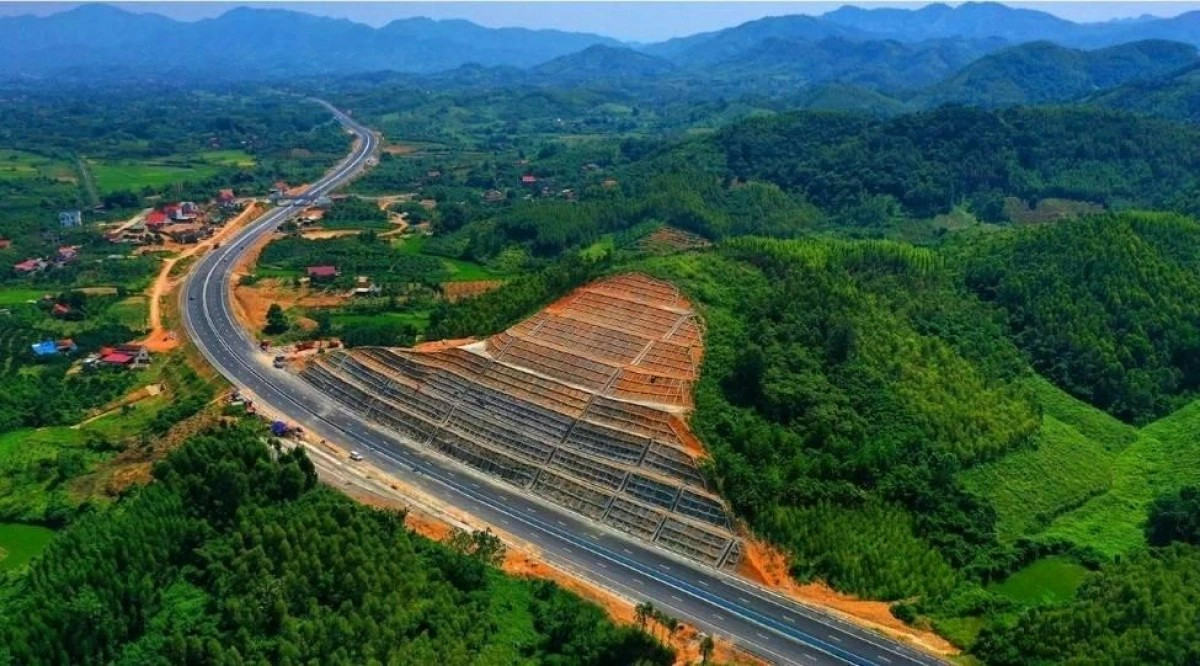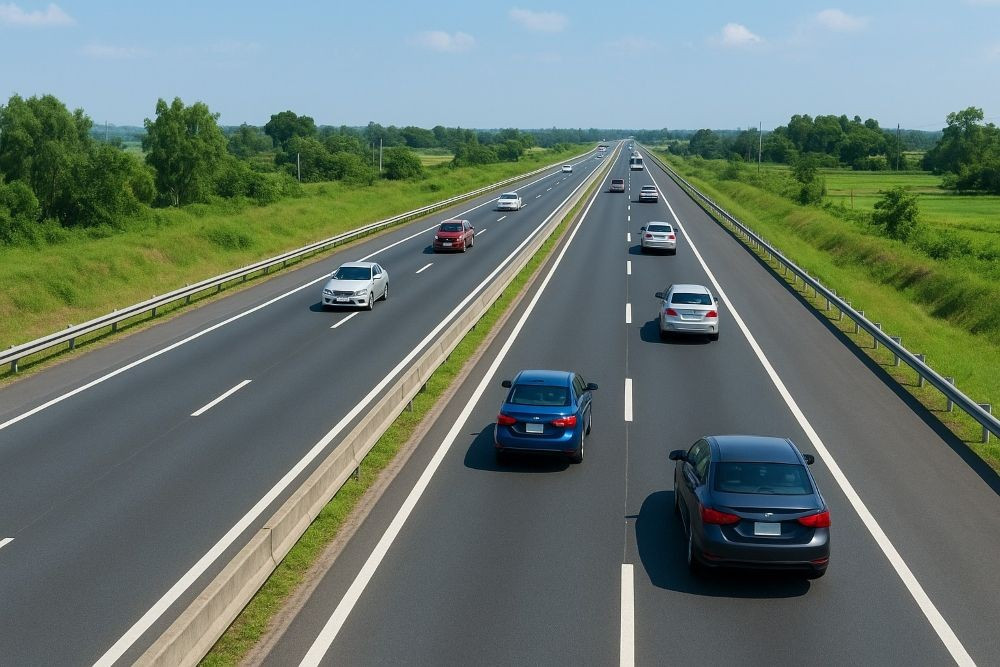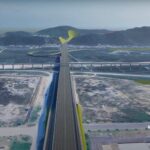According to a decision by Deputy Prime Minister Tran Hong Ha, the Minister of Finance will chair the council, with the Deputy Minister of Finance serving as Vice Chairman. Council members include leaders from the Ministries of Construction, National Defense, Public Security, Agriculture, and Environment, as well as representatives from the People’s Committee of Nghe An Province. The Ministry of Finance will act as the council’s secretariat.
The council is tasked with evaluating and finalizing the report to determine whether the Vinh – Thanh Thuy Expressway project meets the necessary conditions for investment approval by the National Assembly. The council will dissolve upon project approval.
The Vinh – Thanh Thuy Expressway will start at Km0+000, connecting with the North-South Eastern Expressway section between Dien Chau and Bai Vot (Hung Tay interchange, Hung Nguyen commune, Nghe An Province), and end at the Thanh Thuy Border Gate Economic Zone (adjacent to the Thanh Thuy/Nam On border gate).

The Vinh – Thanh Thuy Expressway begins at the intersection with the North-South Eastern Expressway and ends at the Thanh Thuy Border Gate Economic Zone. Illustrative photo: Phi Long.
The 60-kilometer expressway will pass through nine communes: Hung Nguyen, Kim Lien, Dai Hue, Van An, Nam Dan, Xuan Lam, Hoa Quan, Son Lam, and Kim Bang (Nghe An Province).
Under the 2021-2030 road network plan, with a vision to 2050, the expressway will feature six lanes, with a design speed of 100 km/h. In challenging sections, the speed will be reduced to 60-80 km/h.
The project will require approximately 648 hectares of land, with an estimated preliminary investment of nearly VND 24,000 billion. Funding is expected from the state budget, including increased central budget revenue in 2024 and central and local budgets from 2026 to 2030.
The Nghe An Provincial People’s Committee has proposed starting investment preparation and land clearance in 2025, commencing construction in 2026, and completing the project by 2028. The expressway is expected to open for operation in 2029, with final settlement in 2030.
According to the Ministry of Construction, the Vinh – Thanh Thuy Expressway will be a critical segment of the Hanoi – Vientiane corridor, creating the shortest high-speed route connecting the capitals of Vietnam and Laos.

The Vinh – Thanh Thuy Expressway will feature six lanes with a design speed of 100 km/h, reduced to 60-80 km/h in challenging sections. Illustrative photo: AI.
The expressway will facilitate smoother travel from Vientiane to Vietnam’s coastal economic zones, particularly in Nghe An. It will also serve as a foundation for developing the East-West economic corridor, connecting the Mekong sub-region with the Indian Ocean and the Pacific, significantly reducing transport time compared to sea routes.
The project is expected to enhance transport capacity, foster socio-economic connectivity, and create opportunities for urban, industrial, service, and tourism development. It will also optimize land resources, strengthen national defense and security, and promote sustainable poverty reduction in the region.
The Crumbling Apartment Complex: A Tale of Falling Ceilings and Neglect
For almost five decades, the Quang Trung apartment buildings in Nghe An have been standing tall. However, time has taken its toll, and many of these structures have fallen into a state of disrepair, causing concern and anxiety among the residents who call them home.
“Billions Invested in Vinh – Thanh Thuy Expressway”
As a pivotal national project, the Vinh-Thanh Thuy expressway plays a pivotal role in not just completing the strategic transportation network but also unlocking new avenues for growth in Nghe An and North Central Vietnam. This vital link strengthens the bond between Vietnam and Laos, fostering economic cooperation through the East-West Economic Corridor.
Challenges in Restructuring 100% State-Owned Enterprises in Nghe An
“Nghe An province is currently focusing on reviewing the progress and addressing challenges in the process of restructuring, equitizing, and divesting enterprises, as well as transforming public units. The province aims to streamline and optimize its business landscape, ensuring a smooth and efficient transition towards a more dynamic and privately-owned economy.”




















